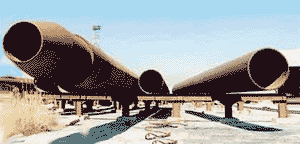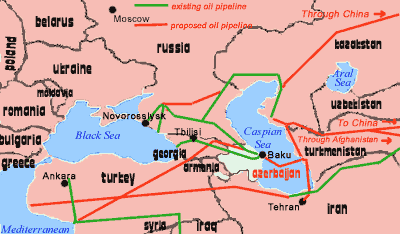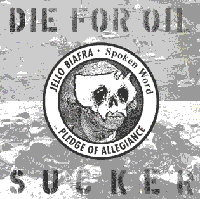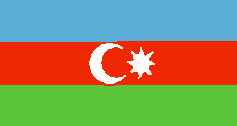|
from 23 july 2002 blue vol II, #38 |
|
|

United Snakes of America by Erik Valencic
During the Cold War, Washington - more or less openly, but always in the name of protecting western values and interests from the Soviet threat - interfered with internal political and economic affairs of the states in the Middle East (and elsewhere in the world). Under the pretence of the Soviet threat, White House enveloped itself in the thick veil of lies and deceptions, which were "necessary" to "justify" military actions abroad in front of the domestic public.
The real threat to American economic interests in the Middle East was Islamic nationalism, which was in the beginning personified by Mosadek's regime in Iran. In 1953 Mosadek was overthrown by the CIA and a pro-American Shah was set in place as the country's new leader. Similar reasons later made the Egyptian leader, Nasser, enemy of the United States. In the Iran-Iraqi war of the 1980's, the White House openly supported dictator Saddam Hussein against 'problematic' new Iranian leader, Khomeini (although it has supplied both sides with arms, including biological and chemical weapons). During that time, starting in 1979, America financially supported, supplied with arms, and trained Afghan Muslim fighters (later known as the Taliban), who were fighting to free Afghanistan, which was under the Soviet occupation.
In Washington the question of controlling Afghanistan was of the utmost importance, since this region was a missing piece in the puzzle of laying a pipe-line to transport oil from the Caspian Sea into the hands of American oil companies in the Indian Gulf. The United States, in accordance with their national interests and priorities, still support and stand by numerous puppet and dictator regimes, or as it has been said: "reliable local elites", such as: Egyptian president Mubarak, the Royal House in Saudi Arabia, Jordanian king, oil magnates in Bahrain, United Emirates of Arabia, etc. For the protection of 'western values and interests' Washington also set up a military controlling system of army bases, which encompasses the region from the Philippines, across the Indian Gulf, Persian Gulf, Saudi Arabia, to Israel and Turkey. Vietnam is missing. It is well known why. The irony lies in the fact that the American military-controlling system has the shape of the Muslim half-moon!
After the Cold War ended, America was forced to abolish the 'Soviet threat cliques', but it has obtained the main control over the Middle East by maintaining the strategy of war tension, which also resulted in the Gulf War. In this time America quickly lost two important allies - the Taliban in Afghanistan and Saddam Hussein in Iraq, which has nevertheless remained up to recently the biggest USA's supplier of oil. Washington strengthened its alliance with Israel, which was described on and on as "the main regional army force, which enables the United States of America strategic advantages in the Near and Middle East" *. The relations with the Arab states remained mostly unchanged, in some cases they even worsened. After the Gulf War, Tom Mann, the chief director at Brookings Institution, commented: "We are talking here about the obvious selfishness. Bush (Senior) treats the countries of the Middle East almost as colonies" *. Since more and more similar critiques followed throughout the years, Washington drastically required new excuses. They came in flying on September 11.

Bush's anti-terrorist war is nothing else but a new attempt to secure the entire economic control over the Middle East region. Afghanistan was merely used as a jumping board. With smashing the Taliban regime, who supposedly meddled in the terrorist attacks on Washington and New York, American oil companies can finally look forward to laying a pipe-line across the region. And to prevent anything from going wrong, Hamid Karzai, an ex-official at the American oil corporation Unocal, was sent in as a new country's leader. Meanwhile, further extensive preparations for a new war are in order - a war, which will not necessarily be limited only on Iraq. America is still in the phase of buying new allies and strengthening ties with the old ones. And at the same time precisely enhancing war tension in the region! By some 'strange coincidence' all new allies border on the Caspian Sea, under which reputedly lies more oil than there is water in it. Thus the White House announced in April that it shall do whatever it takes to help Azerbaijan to secure its territorial waters in the Caspian Sea. Azerbaijan namely got into a serious international dispute with Iran last summer after the latter accused Azerbaijani oil companies, that they are drilling oil out of their sectors. Mira Ricardel, Deputy Assistant Secretary of Defense, who visited Azerbaijan in April assured the local government financial help, which will be earmarked to modernization of Azerbaijani naval army forces. Ricardel stated at this opportunity, that the American help can also be viewed as the struggle against terrorism.
There are also more and more known pieces of information, that testify of the approaching war with Iraq, which just doesn't have much obedience for 'western values and interests'. Besides Bush's on-going warnings about Iraq's chemical and biological weapons (that his father and Reagan sold Hussein during the late 1980's) and Washington's desperate attempts to exclude Iraq from the United Nations, the Pentagon started setting up new army bases (mostly airports) in Bahrain, Qatar, Jordania and Kuwait. Despite many warnings, which come from the Arabic leaders, that the attack on Iraq would present a serious threat to stability in the entire region, White House policy so far seems firm. America has therefore learned nothing from its previous mistakes. As the USA once provided arms to the Taliban, Iran and Iraq, it looks like nowadays it is trying to arm everybody else - against the first three. It seems that USA is still searching for the right combination, that would eventually lead them to total control over the oil-soaked Near and Middle East. And every time this renders back to them some form of a terrorist attack. It definitely looks like the 'Oil Puzzle' is impossible to complete. Ex-mayor of New York, Rudy Gulliani, set up a real going away gift for New Yorkers: a platform from which you can observe the ruins of the - also ex - WTC. It is namely very important, that the American public doesn't ever raise any doubts on what this war against terrorism is all about. But maybe it would be better, if Gulliani would have rather set up a monument for all the deceased in the terrorist attack, that same attack White House DID know was going to happen, and the monument could say: "They died, but the oil lives on!" Let's give grace for that.
|
|||
|
BLUE is looking for short fiction, extracts of novels, poetry, lyrics,
polemics, opinions, eyewitness accounts, news, features, information and arts
in any form relating to eco cultural- social- spiritual issues, events and
activites (creative and political). Send to Newsdesk. |

 The key priority of the American foreign policy was and remains securing military and economic control over the third world regions, which possess immense quantities of crude oil. Among them precede the countries of the Middle East, which were described by former American president Eisenhower as "outstanding source of strategic power and one of the greatest material profits in the world's history" *.
The key priority of the American foreign policy was and remains securing military and economic control over the third world regions, which possess immense quantities of crude oil. Among them precede the countries of the Middle East, which were described by former American president Eisenhower as "outstanding source of strategic power and one of the greatest material profits in the world's history" *.
 The next country that plays the role of Bush's strategic ally (although Bush most probably thinks it lies somewhere in South Africa, right next to Romania), is Kazakhstan, where American marines are momentarily qualifying and training Kazakhstani troops. USA is also placing more soldiers in Uzbekistan, Tadzikistan, Kirgizstan, with military co-operation started also in Turkmenistan.
The next country that plays the role of Bush's strategic ally (although Bush most probably thinks it lies somewhere in South Africa, right next to Romania), is Kazakhstan, where American marines are momentarily qualifying and training Kazakhstani troops. USA is also placing more soldiers in Uzbekistan, Tadzikistan, Kirgizstan, with military co-operation started also in Turkmenistan.